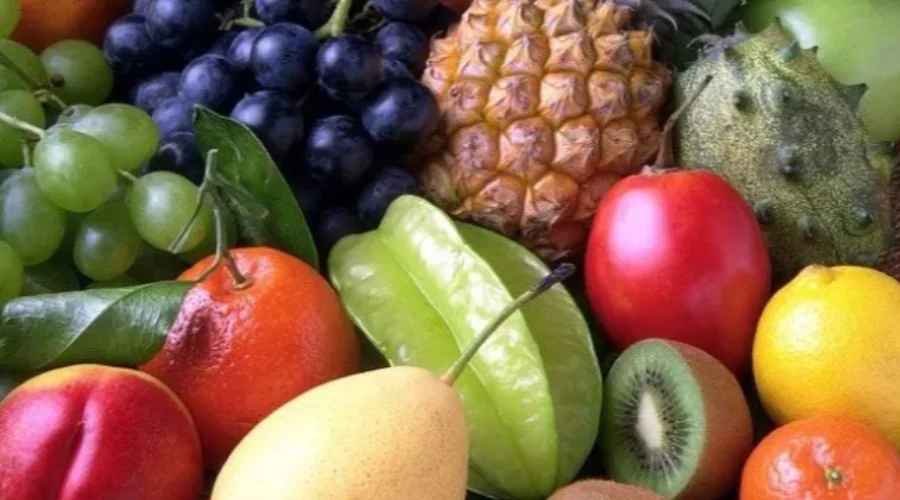
- 29 May
- 2023
Ilustrasi gambar (Pixabay)
FKG UM Surabaya Lecturer: These 8 Fruits Are Good to Eat to Maintain Dental Health
Fruit is usually eaten as a dessert that is refreshing and rich in fiber, especially after a person has eaten sweet and fatty foods which tend to cause damage to teeth.
Based on the nutritional content, several types of fruit are beneficial for maintaining healthy teeth and mouth. In principle, to maintain healthy teeth and mouth you need vitamins, especially vitamins A, C, and D, as well as minerals, such as calcium, phosphorus and fluoride in sufficient quantities.
Anita Yulfiani Lecturer at the Faculty of Dentistry (FKG) UM Surabaya explained eight fruits that have sufficient vitamins and minerals to help maintain healthy teeth.
According to Anita, the first one is Timun Sari. Even though the name is cucumber suri, it turns out that this fruit belongs to the gourd family (Cucurbitaceae), which is still in the same family as pumpkin and melon. This fruit, which has a soft flesh texture and lots of water, is high in calcium, which plays an important role in the formation of hard tissue in the teeth.
"In 100 grams of cucumber suri contains 768 mg of calcium. Meanwhile, the daily calcium adequacy for adults is 1000-1200 mg," said Anita Monday (29/5/23)
In addition, this fruit is also rich in phosphorus minerals which when absorbed by the body will turn into phosphates, then together with calcium and vitamin D, phosphates work to repair and strengthen bones and teeth.
"Cucumber suri contains phosphorus as much as 422 mcg per 100 grams. Meanwhile, the sufficiency of phosphorus for adults is 700 mg per day," he stressed again.
The second is srikaya. With a calcium content of 127 mg per 100 grams or the equivalent of 2 fresh srikaya fruits, this fruit can increase your calcium intake to help maintain healthy teeth. Consuming srikaya regularly according to the RDA (Nutrition Adequacy Rate) or according to the nutritional needs per day from the Indonesian Ministry of Health, has an impact on dental and oral health.
"The impact is being able to improve dental health, help mineralize teeth and prevent tooth root bleeding, support the formation of saliva in the oral cavity and is good for tooth growth," he explained again.
Third, guava water. In 100 grams of water guava fruit flesh has a number of nutrients, one of which is calcium of 31 mg. In several research journals it is explained that water guava also contains magnesium, phosphorus and potassium which play an important role in bone formation and maintaining healthy teeth.
Fourth, sweet orange. Oranges contain nutrients that the body needs. The nutritional content in oranges related to dental and oral health is calcium: 33 mg, phosphorus: 23 mg and vitamin C: 49 mg.
Fifth, papaya. Papaya is very useful in maintaining healthy teeth and mouth because papaya contains fiber and water which can help clean teeth naturally, so that the surface area of debris that forms on the surface of the teeth can be reduced and in the end tooth decay such as caries can be prevented.
Sixth is pineapple. Pineapple fruit has a high vitamin C content to maintain healthy teeth and gums. By eating pineapple slices, we can maintain optimal health of teeth and gums. Consuming pineapple can help you get rid of plaque and make your teeth look much whiter.
Seventh, please. Mouth and dental problems are usually caused by a lack of vitamin C, which causes bleeding gums, rashes, bruising, weakness and fatigue. Young mangoes are rich in vitamin C so they can help cure the problem. Young mangoes can help keep your teeth clean and prevent bad breath.
Lastly, salak. This fruit contains many nutrients that can provide sufficient nutrition for the body. It contains saturated fat, carbohydrates, fiber, protein, vitamin C, vitamin B1, vitamin B2, vitamin B3, vitamin B5, vitamin B6, calcium, iron, potassium, phosphorus, magnesium, copper, manganese, cysteine, lysine, tyrosine, and many more.
“Many people think that calcium is only obtained from milk, even though salak is also beneficial for healthy bones and teeth. The benefits of salak fruit include providing good calcium for bones and teeth. Salak contains enough calcium to meet the family's daily calcium needs," concluded Anita.










(0) Comments